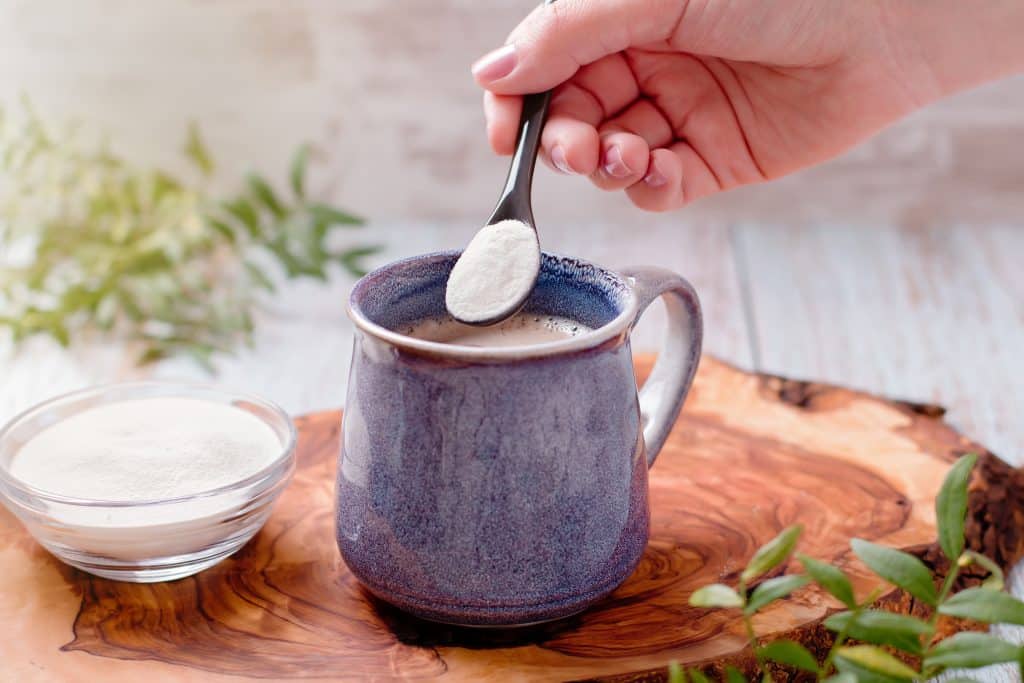A steaming cup of coffee is more than just a morning ritual; it’s a lifeline for millions who rely on it to kickstart their day. But what if that daily cup could offer more than just a caffeine boost? What if it could actually contribute to your overall health? The reality is that traditional coffee often comes with a host of unhealthy additives like sugar, cream, and flavored syrups. The goal of this post is to transform your daily coffee routine into a healthier experience without sacrificing the flavors you love. Get ready to explore a comprehensive guide filled with simple tips to make your coffee healthier.
Contents
The Basics Of Coffee Nutrition

Coffee, in its purest form, is surprisingly low in calories and rich in antioxidants. It’s when you start adding sugar, cream, and flavored syrups that the nutritional value takes a nosedive. These additives not only increase the caloric content but also add unhealthy fats and sugars. Understanding the basics of coffee nutrition can help you make smarter choices when preparing your daily brew.
Quick statistics reveal the caloric impact of common additives. A tablespoon of sugar adds around 49 calories, while the same amount of cream contributes about 52 calories. Flavored syrups can be even worse, with some containing up to 100 calories per serving. Knowing these numbers can be a wake-up call, encouraging you to reconsider what goes into your cup.
Choose The Right Beans

The journey to a healthier cup of coffee starts with the beans. Organic coffee beans are a better choice as they are grown without synthetic pesticides or chemicals. While they may be a bit pricier, the health benefits and richer flavors make it a worthwhile investment.
Arabica and Robusta are the two main types of coffee beans available in the market. Arabica beans are generally considered superior in flavor and contain more antioxidants compared to Robusta. However, Robusta beans have a higher caffeine content. But regardless of which option you choose, opting for whole beans and grinding them yourself ensures maximum freshness, preserving the bean’s natural oils and nutrients.
Mind Your Brewing Method

The method you choose for brewing your coffee can also impact its nutritional profile. Drip coffee makers are the most commonly used but may lose some of the coffee’s natural antioxidants during the brewing process. On the other hand, French press coffee retains more of the coffee’s natural oils, although it can be higher in cholesterol-raising compounds.
Espresso offers a quick shot of coffee with less acidity, making it easier on the stomach. Cold brew, a method that involves steeping coffee grounds in cold water for an extended period, results in a smoother, less acidic beverage. Each brewing method has its pros and cons, so it’s worth experimenting to find the one that suits your taste and health needs best.
Ditch The Sugar, Opt For Alternatives

Sugar may be the go-to sweetener for many coffee drinkers, but it comes with its own set of health risks, including weight gain and increased risk of heart disease. The empty calories from sugar can quickly add up, especially if you’re consuming multiple cups of coffee throughout the day. It’s crucial to look for healthier alternatives that can sweeten your coffee without the negative health impacts.
Natural sweeteners like stevia, monk fruit, and honey offer a sweet taste without the caloric burden. Spices like cinnamon and nutmeg can also add a flavorful twist to your coffee while providing their own set of health benefits. Cinnamon, for example, has antioxidant properties and can help regulate blood sugar levels, making it a double win for your morning cup.
Reconsider Your Creamer

Traditional coffee creamers are often high in saturated fats and sugars, turning your healthy cup of coffee into a calorie bomb. These creamers can also contain artificial flavors and preservatives, which don’t do any favors for your health. The good news is that there are plenty of healthier alternatives available that can add creaminess without the guilt.
Almond milk, oat milk, and coconut cream are excellent plant-based options that offer a rich texture and added nutritional benefits. For those who enjoy a DIY approach, making your own creamer at home allows you to control the ingredients and experiment with flavors. Homemade nut milk or coconut cream can be a delightful and healthy addition to your coffee routine.
Add Nutritional Boosters

Why stop at just making your coffee healthier when you can turn it into a nutritional powerhouse? Adding superfoods like chia seeds, flaxseeds, or a spoonful of cacao can provide extra fiber, antioxidants, and a range of other health benefits. These additions not only enhance the nutritional profile of your coffee but also introduce new flavors and textures.
Protein powders, either collagen-based or plant-based, can be another excellent addition, especially for those who like to have coffee before a workout. Adaptogens like ashwagandha and ginseng can also be mixed into your coffee. These natural herbs are known for their stress-relieving properties and can make your coffee an even more effective tool for tackling the day ahead.
Portion Control And Timing

It’s easy to lose track of how much coffee you’re consuming, especially when you’re refilling a large mug multiple times a day. Excessive coffee consumption can lead to jitteriness, increased heart rate, and digestive issues. Being mindful of portion control can help you enjoy the benefits of coffee without the drawbacks.
Timing your coffee intake can also have health implications. Consuming coffee first thing in the morning can interfere with your body’s production of cortisol, a natural alertness hormone. It’s generally better to wait an hour or two after waking up to have your first cup. Additionally, try to avoid coffee in the late afternoon or evening, as it can disrupt your sleep patterns.
Sustainability And Ethical Choices

Your journey to healthier coffee doesn’t have to stop at what’s in your cup; it can extend to how your coffee is sourced and prepared. Opting for Fair Trade and organic coffee not only ensures that you’re getting a quality product, but it also supports ethical and sustainable farming practices. These choices can make a significant impact on the environment and the communities involved in coffee production.
In addition to choosing responsibly sourced beans, consider using reusable filters and cups. Single-use plastics and paper filters contribute to environmental waste. Reusable options are not only eco-friendly but often designed to allow more of the coffee’s natural oils to pass through, enhancing flavor and nutritional content.
Time To Brew A Healthier Tomorrow!
Embarking on this journey has equipped you with the tools to make your daily coffee ritual a source of wellness. The steps are simple, yet their impact can be profound, touching not just your health but also contributing to a more sustainable world. The next cup of coffee is more than just a beverage; it’s a chance to make a positive change. So, take that step and experience the difference in every sip!


